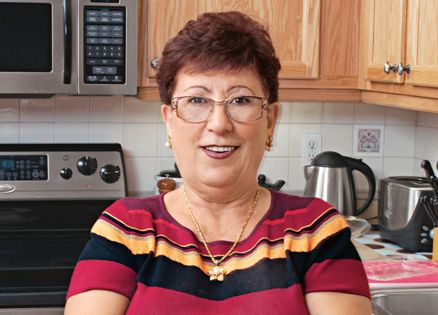I nudged my husband, Vladimir.
“There she is,” I whispered.
We were walking down the hallway of our apartment complex. The she in question—a neighbor—was heading straight toward us. I shot her a smile. But just before our paths crossed, she abruptly turned around and hurried out of sight.
Ever since this woman and her husband had moved in the year before, I’d tried to get to know her. But I’d yet to even learn her name. Each time I saw her, she’d scurry off before I could even say hello.
The man who’d lived in their apartment before had been so friendly. We invited him to barbecues, and we helped one another with errands. He became a good friend. When he moved, I assumed we’d grow just as close to our new neighbors. Our large retirement community is a friendly place. There are a lot of nods and smiles. Sometimes the gentlemen even tip their hats. For some reason she wanted no part of it.
“Is it us?” I asked Vladimir. “Have you seen her talking to any of the other neighbors?”
“Sonia, what do you care? Why do you need her to say hello?” he said.
He was right, I couldn’t expect to get to know everyone. Still, it bothered me. I’ve always been outgoing. I would feel terrible if she thought I’d slighted or offended her. We’re neighbors after all.
A few days later I was strolling through our clubhouse. I turned a corner, when suddenly she and I were face-to-face. “Hello” hardly escaped my lips before she bolted.
Why can’t I get through to her? I wondered later that night. I pulled ingredients from the fridge for dinner. Borscht, that’s what I’d make. It always made me feel better. I grated the beets, added a dash of sugar and lemon and let the mixture simmer on the stove.
My thoughts drifted back to my childhood in Russia. I could still smell Mother’s borscht, the heady aroma of garlic and beets wafting through the house, the four of us kids clamoring for a bowl. It was perfection: rich in color, served cold with a dollop of sour cream—a spoonful was all it took to make life’s worries disappear.
Living under the Communist regime, we didn’t have much, but Mother believed in sharing our blessings—especially the delicious food she cooked—with family, friends…and neighbors too. “Sonia,” she’d say, “always be willing to share your last bite.”
That’s what I needed to do! I poured a generous helping of borscht into one of my prettiest bowls, walked over to our neighbors’ apartment and rang the bell. The door opened a crack.
“What is it?” It was the first time I’d heard her voice.
“Hi, I’m Sonia. My husband, Vladimir, and I live right there,” I said, pointing to our apartment. The door opened a little wider. “I brought you some of my homemade borscht.”
She looked at me like I was from another planet. “I don’t want to take your food,” she said.
“You’re not taking my food from me. I’m sharing my food with you,” I said, holding out the bowl. “I don’t mean to intrude; I just wanted to introduce myself.”
She still looked puzzled, but she took the bowl. “Thank you,” she said, then quickly shut the door.
Vladimir was eager to know what happened with our reclusive neighbor. “So, did she like the borscht? Did she finally say hello? Let me guess…she didn’t let you in, did she?”
“Well, she took the borscht. Now whatever will be, will be,” I told him.
A couple of days passed and we didn’t see her, or her husband. Maybe I should’ve minded my own business, I thought. I’m such a but-in-ski!
Then, on the third day, Vladimir and I came back from a walk to find my bowl outside our door, along with a beautiful bouquet of fresh flowers. There was a note too: “Thank you for the delicious borscht. Berta and Sam.”
Berta and Sam are strangers no more. Today, we wave when we see each other and we make small talk at the community pool. I’ve even noticed Berta and Sam striking up conversations with other folks.
We may not be best friends, but that’s okay—just being friendly feels pretty great. Mother was right. It makes a difference when you share your blessings, even something as simple as a smile, or a bowl of borscht.






